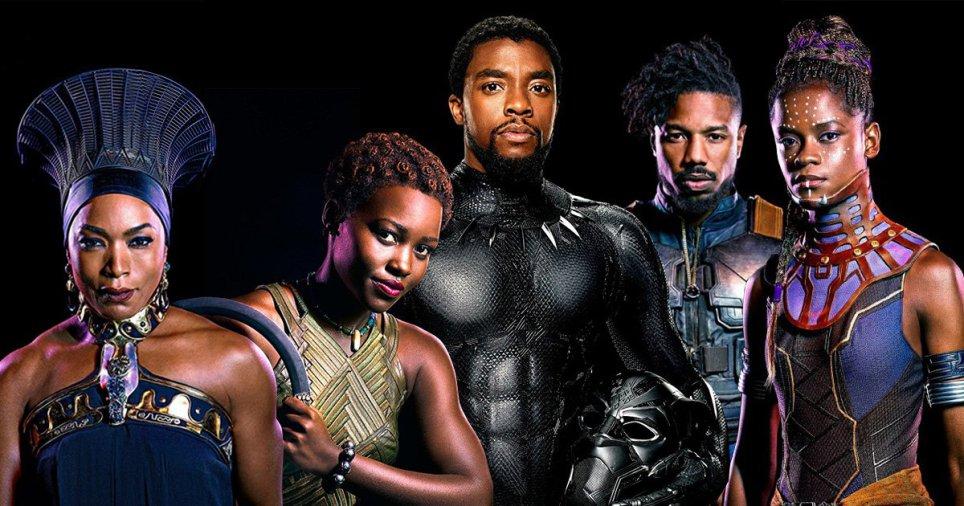The release of ”Black Panther” in 2018 marked a significant turning point for the Marvel Cinematic Universe (MCU), not merely as another addition to its expanding repertoire of superhero narratives but as a cultural and cinematic milestone. As the first Marvel film to feature a predominantly Black cast and to be helmed by an African-American director, Ryan Coogler, “Black Panther” transcended the typical boundaries of its genre, offering a rich tapestry of storytelling that resonated with audiences worldwide. This article seeks to explore the multifaceted reasons why “Black Panther” stands out as a landmark achievement within the MCU, examining its cultural impact, financial success, and the ways in which it redefined the superhero genre to include more diverse and inclusive narratives. Through an analytical lens, we will delve into the elements that contributed to the film’s groundbreaking status and its enduring legacy in the realm of modern cinema.
Cultural Impact and Representation in Black Panther
The release of Black Panther marked a significant cultural shift within the Marvel Cinematic Universe (MCU), acting as a vibrant celebration of representation/” title=”Is Black Panther Overpraised, or Does It Truly Redefine Black Representation”>African heritage and identity. This film transcended traditional superhero narratives by weaving a rich tapestry of African culture, history, and innovation. Wakanda, a fictional African nation, became a symbol of Afro-futurism, showcasing an advanced society that harmoniously blends technology with tradition. The visual representation of Wakanda, from its landscapes to its costumes, was a meticulous endeavor that paid homage to various African cultures, resulting in a visually stunning and culturally resonant setting.
- Empowerment: The film offered a platform for African and African-American actors to shine in prominent roles, providing a diverse range of characters that challenged stereotypes.
- Representation: Characters like T’Challa, Shuri, and Okoye presented multifaceted portrayals of leadership, intelligence, and strength, reshaping the narrative around what a superhero can be.
- Community Impact: Black Panther sparked discussions about representation in media, inspiring a new generation to see themselves as heroes and innovators.
Moreover, the film’s success underscored the demand for stories that reflect the diverse world we live in, proving that audiences are eager for narratives that are inclusive and representative. By prioritizing authenticity and diversity, Black Panther not only enriched the MCU but also set a precedent for future films to follow.

Economic Success and Its Implications for Future Films
The financial triumph of Black Panther redefined expectations within the Marvel Cinematic Universe (MCU) and the broader film industry. Its staggering box office performance underscored the lucrative potential of films that embrace diversity and explore culturally rich narratives. This success has significant implications for future film projects:
- Diversification of Storytelling: Studios are now more inclined to invest in stories that feature diverse characters and settings, recognizing the global appeal and profitability of such ventures.
- Increased Budget Allocations: The economic return on Black Panther has paved the way for increased budgets for similar films, allowing for higher production values and more expansive storytelling.
- Expanded Audience Reach: By appealing to a broader demographic, future films can achieve higher engagement and retention, leading to sustained franchise growth.
These factors collectively indicate a shift towards a more inclusive and varied cinematic landscape, driven by the proven economic benefits of diverse representation.

Influence on Storytelling and Character Development in the MCU
The introduction of Black Panther in the Marvel Cinematic Universe (MCU) marked a significant shift in storytelling and character development, setting a new standard for the portrayal of diverse cultures and identities. This film, through its rich narrative and complex characters, explored themes of heritage, responsibility, and identity, pushing the boundaries of what superhero films could achieve. Unlike previous entries in the MCU, Black Panther offered a nuanced depiction of the fictional nation of Wakanda, blending futuristic technology with deep cultural roots. This innovative approach not only enriched the storyline but also resonated with audiences worldwide, offering a narrative that was both universal and deeply personal.
- Complex Characters: T’Challa, Killmonger, and Shuri each represented different perspectives and ideologies, creating a dynamic interplay that challenged traditional hero-villain dynamics.
- Cultural Representation: The film’s dedication to authentic African culture and aesthetics provided a refreshing and respectful portrayal that was rarely seen in blockbuster cinema.
- Social Commentary: Addressing issues such as isolationism, racial identity, and global responsibility, the film managed to weave social commentary seamlessly into its superhero narrative.
By focusing on these elements, Black Panther not only elevated the MCU’s storytelling but also set a precedent for future films to embrace diversity and depth in their characters and narratives. This milestone demonstrated the power of inclusive storytelling and its ability to captivate a global audience, ensuring that the MCU continues to evolve and reflect the diverse world it seeks to entertain.

Recommendations for Integrating Diverse Voices in Blockbuster Films
The success of “Black Panther” demonstrated the powerful impact of integrating diverse voices into blockbuster films, setting a new standard for the industry. To replicate this success, filmmakers should consider several key recommendations:
- Authentic Representation: Collaborate with writers, directors, and actors from the communities being represented to ensure genuine portrayal. This can help create characters and stories that resonate deeply with audiences.
- Cultural Consultants: Employ cultural consultants to guide the depiction of traditions, languages, and settings. This practice enhances authenticity and avoids stereotypes or inaccuracies.
- Inclusive Storytelling: Develop narratives that highlight diverse perspectives, ensuring they are integral to the plot rather than token additions. This can enrich the storytelling experience and broaden its appeal.
- Marketing Strategies: Implement marketing campaigns that celebrate diversity, targeting a wide range of demographics and emphasizing the film’s unique cultural elements.
By embracing these strategies, filmmakers can create blockbuster films that not only entertain but also inspire and educate, following the trail blazed by “Black Panther”.
